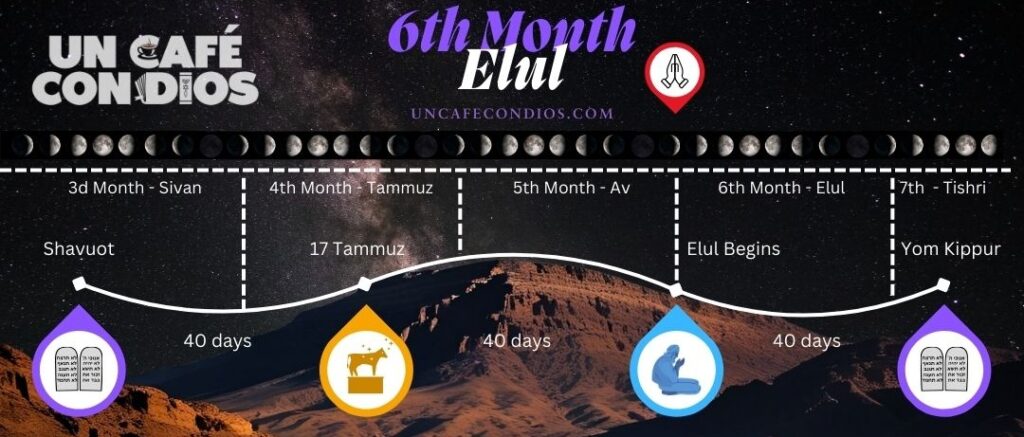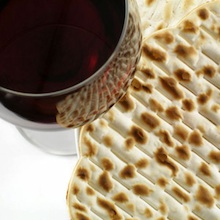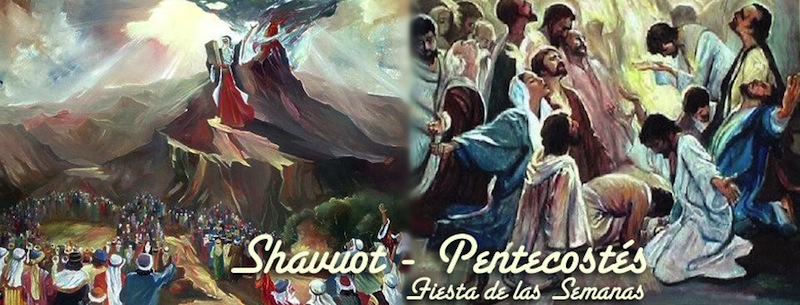
Moses’ 40-Day Ascents and the Significance of Elul
The number 40 holds profound significance in the Bible, often symbolizing a period of testing, preparation, or transformation. According to rabbinic tradition, Moses ascended Mount Sinai three times, each for 40 days, in a divine journey that shaped Israel’s covenant with God.
First Ascent: Receiving the Torah
Moses first climbed Mount Sinai on Shavuot or Pentecost to receive the Torah, God’s sacred instruction, inscribed on stone tablets. However, upon descending, he was met with a shocking sight: the Israelites celebrating around a golden calf, defying God’s covenant. In righteous anger, Moses shattered the tablets. Tradition places this tragic event on the 17th of Tammuz, a day marked by calamity in Jewish history.
Second Ascent: Intercession for Israel
The next day, Moses destroyed the golden calf and judged those responsible. He then ascended Sinai again for 40 days, pleading for God’s mercy on behalf of Israel. This time, he received no immediate answer and returned to the camp, still burdened by the people’s sin.
Third Ascent: New Tablets and Forgiveness
On the 1st of Elul, the sixth month in the biblical calendar, God called Moses to ascend Sinai a third time. For another 40 days and nights, Moses communed with God, receiving a new set of tablets. On the 10th of Tishri—Yom Kippur, the Day of Atonement—Moses descended, carrying the assurance of God’s forgiveness and reconciliation with Israel.
The Significance of Elul
In rabbinic tradition, the month of Elul represents the 40 days Moses spent on Sinai during this third ascent, a season of repentance and renewal. Known as cheshbon hanefesh—a time of “soul-searching”—Elul’s 29 days call believers to reflect deeply, repent sincerely, and seek God’s mercy. This period culminates in Yom Kippur, when the Israelites, fully repentant, received God’s pardon.
Forgiveness through Yeshua
Let this Elul be a Spirit-led season, guided by the Ruach HaKodesh (Holy Spirit), to examine our hearts and turn back to God. Through the sacrifice of Yeshua, we find the assurance of divine forgiveness. As 1 John 1:5–10 declares:
“This is the message we have heard from him and proclaim to you: God is light, and in him there is no darkness at all. If we say we have fellowship with him while we walk in darkness, we lie and do not practice the truth. But if we walk in the light, as he is in the light, we have fellowship with one another, and the blood of Jesus his Son cleanses us from all sin. If we say we have no sin, we deceive ourselves, and the truth is not in us. If we confess our sins, he is faithful and just to forgive us our sins and to cleanse us from all unrighteousness. If we say we have not sinned, we make him a liar, and his word is not in us.”
May this season of Elul inspire us to walk in God’s light, confess our shortcomings, and embrace the forgiveness offered through Yeshua’s sacrifice. Shalom!


